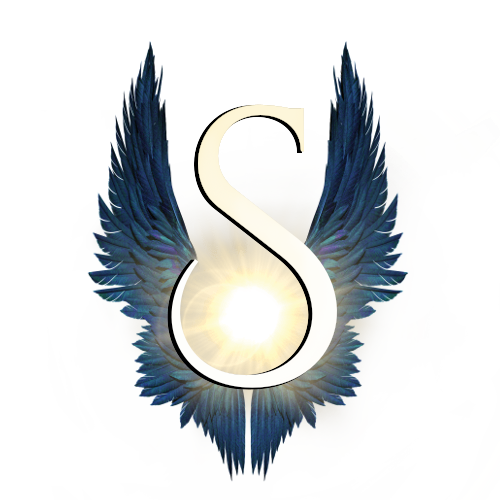GLOSSARY
Abzar İyesi – A creature which acts as a guardian spirit of the courtyard or front garden of the home. It can take the shape of any animal. (See Bibliography [17]).
Agha – The general officer of the janissaries. (See Bibliography [1, 4]).
Allah’a şükür – Thank God.
Bezesten – An enclosed marketplace much like a mosque. (See Bibliography [1]).
Constantinople – Present day Istanbul. Constantinople was the official name of Istanbul until the mid 20th century. (See Bibliography [3]).
Divan-ı Hümâyûn – The Imperial Council. (See Bibliography [15]).
Eid al-Fitr – A three day long holiday after the fast. (See Bibliography [1]).
Erguvan Tree (a.k.a. “Judas tree”) – A bright purple flowering tree that blooms in the spring and native to Turkey. (See Bibliography [7]
Eunuch – Certain slaves were castrated to become eunuchs. Only black eunuchs were allowed inside the Harem. Some eunuchs retained sexual abilities and desires. If this was discovered they would be killed. (See Bibliography [1, 5]).
Franks – Anyone who is not Turkish. (See Bibliography [1]).
Friday Selamlik – Friday Prayer. Sultans would ride out surrounded by their guards on their way to the Imperial mosque. (See Bibliography [12, 15]).
Gelin Alma – To fetch the bride on the wedding day. (See Bibliography [15]).
Görücülük – The act of examining a woman as a potential bride. This is done by a woman, usually by the mother with sons of marriageable age. (See Bibliography [10, 15]).
Helva (a.k.a. “Halva” or “Çövenç”) – A dessert commonly sold on the streets in Constantinople during the 17th century. Legend has it that Çövenç is the source of strength and vitality symbolizing the transition from this universe after death. (See Bibliography [1, 14, 17]).
Hortlak – Turkish equivalent to a zombie. (See Bibliography [17]).
Hünnap – Also known as Jujube, this fruit grows from a flowering tree. The fruit is reddish-brown and its proportion is similar to an olive. (See Bibliography [14]).
Iftar – The meal eaten after sundown during Ramadan. (See Bibliography [14, 15]).
Janissary – A soldier in the Turkish army. (See Bibliography [1, 4, 8]).
Kına Gecesi – A Henna party held on the last night the bride spends in her family’s home. Women of both families attend. (See Bibliography [15]).
Kingfisher – A small bird native to Turkey with blue and golden brown feathers. (See Bibliography [11]).
Kiraz – Cherries. The sultan’s important guests and visiting ambassadors were often served a feast including cherry pudding and sherbet. (See Bibliography [14]).
Kizi – Daughter. Before surnames were implemented, names consisted only of the father’s name followed by ‘kizi’ plus the daughter’s name. (See Bibliography [13]).
Kizlar Chief (or “Kilzaragasi”) – Chief of the girls. This position was held by a black eunuch in charge of the Harem. The Kizlaragasi often had political power. “Agasi” is the equivalent to Chief which is used in this story for simplicity. (See Bibliography [1, 5]).
Köçek – Male dancers known to wear skirts and try to act like girls through dances. They performed in public, unlike the female dancers who only performed in front of other women. (See Bibliography [1, 15]).
Leventis – Naval soldiers that caused a lot of trouble for Constantinople. The three curses were considered “pestilence, fires, and the leventis”. (See Bibliography [1]).
Mangala – A game played with seashells and was often enjoyed by Turkish women during the 17th century. (See Bibliography [1]).
Mech – A short sword. (See Bibliography [15]).
Medlar (a.k.a. “Musmula”) – A brown fruit that grows on a short tree. (See Bibliography [14]).
Nishanji – Chancellor of the records. This position was in charge of sealing all of the Sultan’s documents. (See Bibliography [4]).
Oglu – Son. Before surnames were implemented, names consisted only of the father’s name followed by ‘oglu’ plus the son’s name. (See Bibliography [13]).
Ottoman lake – The Black Sea was often regarded as the Ottoman lake between the 15th and 17th centuries. (See Bibliography [3]).
Ramadan – A religious fast practiced each year by Islam that lasts for thirties days. (See Bibliography [1, 10, 15]).
Simit – A round, Turkish bread usually made with sesame seeds or sunflower seeds. (See Bibliography [14]).
Sofa – A large room much like the living rooms today, positioned at the outer wall of the home. (See Bibliography [16]).
Solak – A left handed bowman who served as the Sultan’s personal guard. (See Bibliography [1, 9]).
Salatu-l-Fajr – Early morning prayer. (See Bibliography [10]).
Söz Kesimi – A promise or agreement to marriage. (See Bibliography [15]).
Tandir – A low table with a burner underneath to provide warmth. It is covered with an ornate cover that reaches the floor and surrounded by couches. (See Bibliography [1]).
Tutku flower – Passion flower herb. In this story it is used to suppress the Ubir’s thirst for blood. It tastes of grass with notes of berry.
Valide Sultan – The title of “mother sultan” was given to the deceased sultan’s chief escort if her son became the sultan. The valide sultan had a lot of power over the harem as well as in political affairs. (See Bibliography [1, 9, 10, 15]).
Ubir (or “Ubirdi”) – A vampire in Turkish mythology. According to their legend, Ubirdi people look for food at night and, if they cannot find blood to drink, will turn into flames. (See Bibliography [2, 6, 17]).
Yasmak – Turkish covering made of silk. One piece of the cloth was worn to cover the head and upper forehead, the second piece of cloth covered the mouth and nose. (See Bibliography [1, 10]).
Yasmak – Turkish covering made of silk. One piece of the cloth was worn to cover the head and upper forehead, the second piece of cloth covered the mouth and nose. (See Bibliography [1, 10]).
